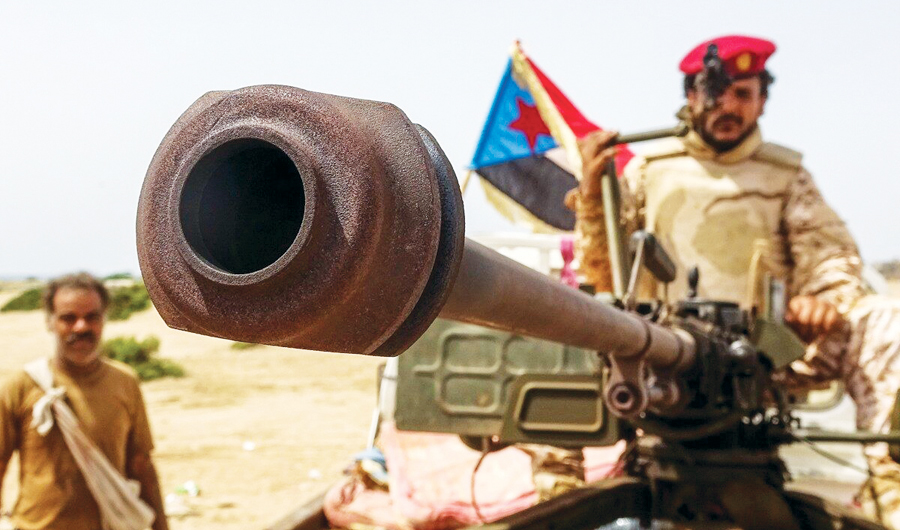Secular Lebanese student groups see political success amid national crisis
BEIRUT: Student movements at Lebanese universities and independent civic groups are reorganizing themselves with the goal of changing the ruling authority in Lebanon.
Secular and independent clubs affiliated with the Mada network in Lebanon’s universities launched the “Declaration of Lebanese Students” on Saturday, in light of “the unprecedented risks threatening students, especially the crisis of the dollarization of tuition fees.”
That dollarization has seen tuition fees start to massively increase at institutions across the country, following decisions to adopt the Lebanese Central Bank’s new exchange rate of 3,900 Lebanese pounds to the dollar. The American University of Beirut (AUB) saw its tuition costs increase 160 percent alone as a result.
Lebanon has been in the grip of a currency crisis ever since the pound, previously pegged at 1,500 to the dollar, began to devalue rapidly as a consequence of political and economic mismanagement, blamed by many on the country’s elite.
Student elections at a number of private universities in Lebanon resulted in a series of unprecedented victories for independents, especially secular representatives, on representative councils this year, after decades of being held by students from the country’s ruling parties.
The representative of the Secular Club at Saint Joseph University, student Charbel Shaya, said: “The independent, unified student movement has turned the tables after student representation was confiscated by parties in power. I believe that networking between us has led to achievement, and the time has come to fight the battle of refusing the dollarization of tuition fees as a prelude to rejecting what the parties committed against us as people.”
Qamar Suleiman, a medical student at the University of Balamand, said: “Political awareness in universities is one of the means for change. Politics controls the corners of our lives, and engaging in student elections is a step toward creating independent secular groups that believe in social justice to improve student life and protect their rights.
“We want to impose a truly progressive and clear political discourse that establishes grounds for individuals capable of practicing political life in a sound manner after graduation,” he added. “The parties in power make us pay for things that we did not commit, but rather they did.”
Manal Suleiman, an engineering student at Notre Dame University, said: “Universities are the ones that should fear their students, just as governments should fear their people. Students today are reclaiming their role through independent student movements that aim for change.”
And Jad Al-Hani, from the AUB, said: “The retreat of the (main) parties in the student elections at the university was a declaration of defeat. The first battle we will fight is the battle against dollarizing tuition fees. We are headed toward an escalation in the coming days.”
On Saturday, the opposition member of Parliament, Brig. Gen. Chamel Roukoz, called on the Lebanese youth not to leave their homeland “in the custody of those who betrayed the land and the people.”
Roukoz, the son-in-law of President Michel Aoun, said: “The victory of student elections in universities is the best evidence of the failure of this authority, which today, more than ever, feels at risk of removal.”
Roukoz said during a meeting with his supporters, many of whom have participated in protests that have lasted months: “Two years after my entering the political arena, I see that the logic of obstruction overrides the logic of legislation — or legislation in the interest of profiteers … at the people’s expense. There is no intention in the foreseeable future to adopt any correct anti-corruption policy, nor any real financial, economic, social, and rescue strategy to address the crisis from which the Lebanese people are suffering.”
He described the leaders in Lebanon as failures, and said: “Building the homeland cannot be carried out by militias, that were the reason for the nation’s entry into a bloody civil war, nor by tailoring departments and institutions to suit the sects and their leaders.”
Meanwhile, the Lebanese Army was deployed near the residence of Parliament Speaker Nabih Berri over fears he could be targeted by protesters.
In recent days, groups have tracked down political and economic figures, following them to restaurants and cafes to protest, accusing them of theft, including former minister Adnan Kassar, the wife of the governor of the Banque du Liban, Nada Riad Salameh, and the secretary-general of the Future Movement, Ahmad Hariri.
Elsewhere, trade unions affiliated with the General Labor Union are set to go on strike next Wednesday in rejection of any move to cut subsidies for basic goods.
Union leader, Bechara Al-Asmar, said on Saturday that “political conflicts do not bode well, but rather increase the tragedies of the Lebanese people. A minimum level of understanding is required to form a government that can handle the crises.”
In a report issued earlier this month, the World Bank warned in a report that “Lebanon is suffering from a dangerous depletion of resources, including human capital.”
The report highlighted that “a contraction of Lebanese GDP per capita in real terms and high inflation in 2020 will undoubtedly result in a substantial increase in poverty rates and will affect the population through different channels such as the loss of productive employment, decline in real purchasing power, and stalled international remittance.”

Lebanon’s PM-designate Hariri gives president new government line-upLebanon health crisis looms with drug stocks under threat







